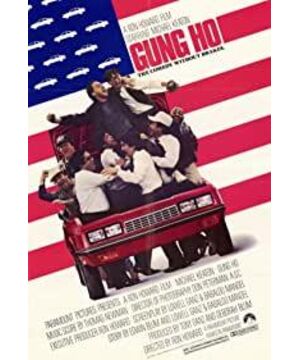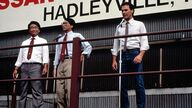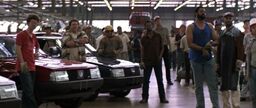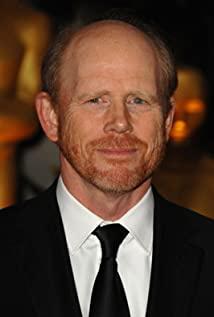The film was shot in 1986, 27 years ago. The reason why this movie was dug up like a big wave was because of an article in the New York Times. When the article talks about "Shuanghui's acquisition of Smithfield", it expands to the current Chinese investment boom in the United States, and recalls the wave of Japanese investment in the United States in the 1980s, and the film Gung Ho is one of Hollywood's masterpieces of that era. In fact, the English word Gung Ho comes from Chinese and is a transliteration of "work". In the late Qing Dynasty, poor Chinese laborers were taken captive to the United States to build railways after the end of the American Civil War. The hard-working spirit of these laborers impressed Americans deeply. Described as active and efficient in doing things, and later developed a fanaticism of extended meaning. However, the obviously imported English word Gung Ho is obviously not completely consistent with the connotation of being active and efficient in doing things. This word also includes the meaning of individuals obeying the collective and doing things neatly and uniformly. The film is titled Gung Ho, and it does a good job of depicting what it means to have Chinese, especially Japanese, work. Now it seems that the quality of the shooting is mediocre, and there are many empty and meaningless shots; the cultural image is stereotyped, the Japanese are meticulous to the work spirit like robots, and the collectivism reflected in going to the river to take a bath together; the bridge design is blunt, and the wife has to give birth to children. Exaggerated plot of factory overtime. Nonetheless, I believe that this is how Americans viewed a rising Japanese economy back then, and Americans may still view the rising Chinese economy this way. In the movie, there is a scene in a bar. The Japanese who are depressed at work change completely when they go to the bar. They drink, make noise, and dance wildly, while the old beauty is still limited to leisure and social interaction in the bar, and the revelry is limited to parties in private homes. , not in public. What's more interesting is that the Japanese manager told the truth after drinking: "I'm in big trouble. I can't complete the production task, and my career is going to be ruined." They say that as long as the output is increased, the salary can be increased, even if the higher target cannot be achieved.” The Japanese manager laughed wildly and said, “You are right!” When the American manager heard it, he thought that the Japanese manager would agree to increase the output. You can raise your salary, but the Japanese manager then whispered: "You are indeed in more trouble than me, ha ha!"
View more about Gung Ho reviews











